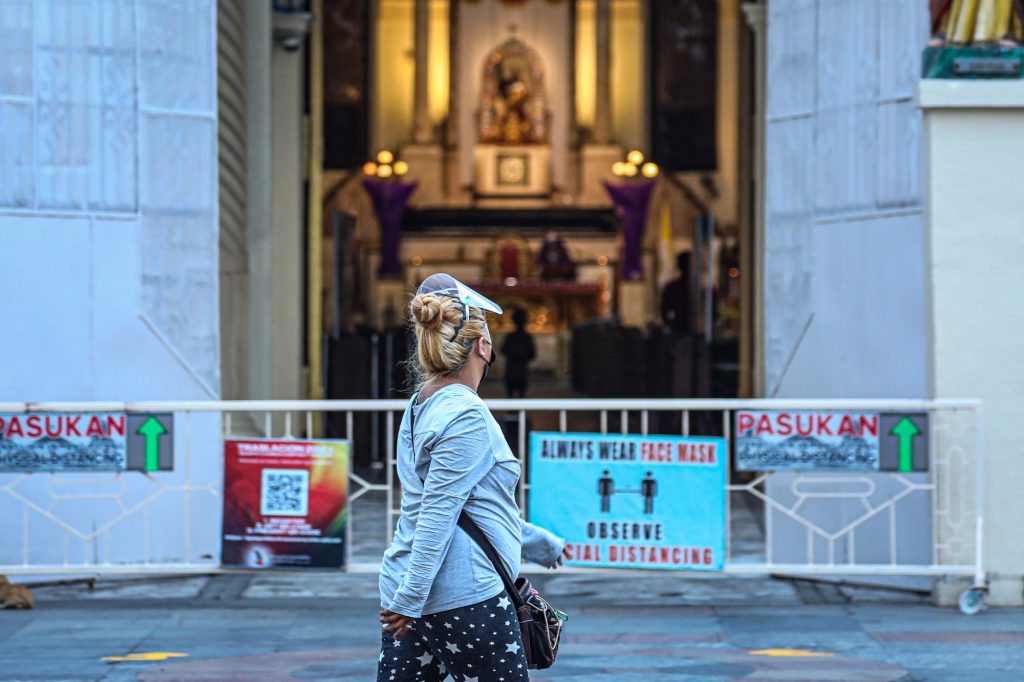
Last month, a coastal parish in the northern Philippines gathered fisherfolk and residents of communities to discuss the impact of the phenomenon of black sand mining in the area.
The priest said the activity was part of the “synodal process” that was launched by the Catholic Church to listen to the concerns of the community.
In the southern Philippines, a parish priest was only able to send the president and treasurer of the Parish Pastoral Council to attend a diocesan consultation on how to proceed with the process.
He was apologetic. He said the parish and many other parishes in the area have been busy with various activities that impact communities, especially during the pandemic.
“The meetings and consultations are too time-consuming,” he said.
Attending the activities entail resources, such as food and transportation, that parishes and individuals don’t have because of the effect of the health crisis on the economy.
In the national capital, many parishioners are still wondering how to go about with the “process” to ensure that the voice of the “least, the lost, and last” would be heard.
In poor communities, most people don’t have access to the internet, especially to the online platforms that are being used for parish level consultations.
“I learned about the start of the synodal process only days before it was held,” said one parish worker. “In the actual diocesan setting, there is lack information and coordination,” he said.
Announcements were posted on social media, mostly on Facebook, with the date and people who are supposed to speak during the consultations.
“I did not know who are specifically mobilized,” said the parishioner. “I presumed that the lay people and the clergy who participate were already selected earlier,” he said.
This makes the process “problematic.” Selecting people who would attend the consultations will limit the scope, if not the wealth, of the discussions.
“I welcome the idea of a synod,” said Antonio “Tony” Villasor, a longtime church and human rights worker in a parish in the Philippine capital.
He said the process should result in “more dynamic changes in the Church according to what is envisioned by Pope Francis.”
It is time for the hierarchy to “reach out to the multitudes of believers,” said Tony, adding that the Church leadership “has been perceived and is doing more the sacramental.”
He said the Church needs to organize the faithful not only for online Masses but “in building compassion with the poor, alleviating poverty, advocating peace and working for social justice.”
The Church needs to be “more pastoral and more dynamic,” said Tony even as he noted that there are “uneven practices and understanding of what a dynamic, constructive, community-based Church from the grassroots or the peripheries is.”
He acknowledged that the process would take some time, especially in “uprooting the injustices” and in building a healthy community.
“The path of dialogue, cooperation, and planning through the synod must come out with more concrete and less motherhood statements,” he said.
“It must be like mustard seeds that grow with the fire of the Holy Spirit,” he added.
It is indeed presumptuous to expect one template (and uniform results) in the holding of the synodal process because as many of my faithful friends would say, “the Holy Spirit works in various and mysterious ways” unique to each individual.
My friend Rene Tadle, a professor and labor rights advocate, wrote to say that he disagrees with the missionary priest who expressed cynicism about the synodal process.
“Unless the unnamed priest … was just trying to be ironic, I disagree with his claim that the Church does not need the synodal process,” said Rene.
“The Catholic Church needs it badly so that, for heaven sakes, the faithful can pull the priests and the religious from their high horses and ask them to get real and be mindful of their vows.”
“From the perspective of the lay person like me,” he said, “[the synodal process] is one important legacy that will characterize the servanthood (not “reign”—too monarchical for me) of the first Jesuit pope named Francis.”
Jose Torres Jr. is editor-at-large of LiCAS.news
Source: Licas Philippines
0 Comments